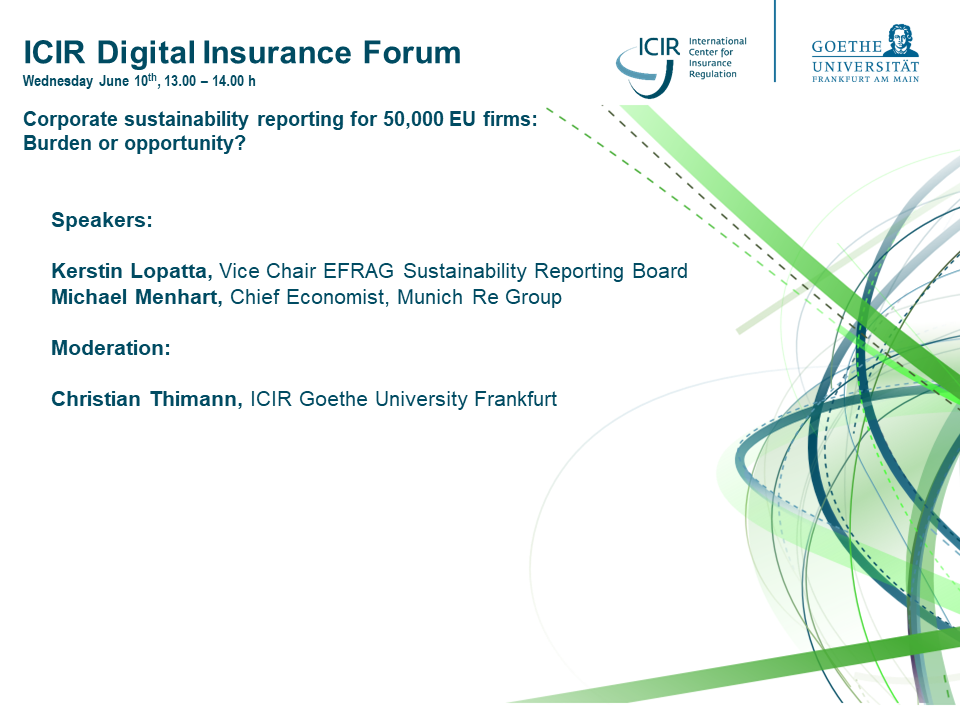
Published in Zeitschrift für Versicherungsrecht, Haftungs- und Schadensrecht, Vol. 13, pp. 809–827 (2023). German version below.

We present a quantitative estimate of the demand for insurance in Germany with a particular focus on life insurance in the medium and long run.

Pension systems all over Europe are increasingly coming under strain.

Christian Thimann opened the Digital Insurance Forum 2/23 with a brief overview of the EU’s plans to introduce comprehensive corporate sustainability reporting standards for 50,000 companies. The aim of the European Sustainability Reporting Standards (ESRS), based on the new Corporate Sustainability…

ICIR Digital Insurance Forums 1/23 (Zusammenfassung)
Dozent: Dr. Kevin Bork, Leiter Recht & Compliance, Helvetia Versicherungen Deutschland
Special Advisor Drafting & Research, PRICL

Senior representatives from European insurance supervisors, reinsurers, insurers, and academics met for a one-day Roundtable event at Goethe University in Frankfurt on February 16, 2023, to discuss insurance and regulation.

On December 14-15 2022, the ICIR held a scientific conference on “The Private and Social Insurance Implications of Demographic Change” at Goethe University. The main idea of the conference is to bring together international scientific experts in the fields of insurance to discuss topics related to…

The starting point for today's considerations is the observed high inflation, the trend reversal in the key interest rates of all central banks over the past year, and the resulting increase in nominal current yields on 10-year government bonds with negative real yields at the same time. The key…

This blog post provides an overview of the scope and concept of the state capital reserve for civil servant pensions in Germany.